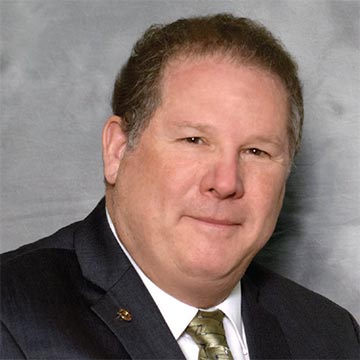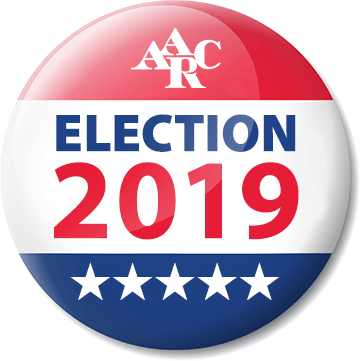Vice President – External
Timothy Op’t Holt, EdD, RRT, FAARC
University of South Alabama
Professor
Member Since: 1977
AARC Activities:
- Board of Director position(s) and year(s) of office, At Large BOD Member, 12/2014-present
- Education Committee Member, 1991-1992, 1995
- Political Action Committee Member, 1989
- Education Section Chairman, 1987-1988, 1992-1994
- Education Section Newsletter Editor, 1984-1986
- Education Section Program Committee Member, 1983-2010
- Education Section Program Committee Chairman, 1997-1999
- Education Section Long Range Planning Committee Chairman, 2002-2010
Affiliate Activities:
- President, Alabama Society for Respiratory Therapy, 1997
- President Elect, Alabama Society for Respiratory Therapy, 1996
- Vice President, Alabama Society for Respiratory Therapy, 1988, 1998, 2004
- Southwest District Representative, Alabama Society for Respiratory Therapy, 1986-1987, 2000-2003
- Program Committee Member, 1983-1989
- Treasurer, 1982-1984
Related Organizations:
- Committee on Accreditation for Respiratory Care (CoARC), Site Visitor, 1982-present
- Coalition for Baccalaureate and Graduate Respiratory Therapy Education, Treasurer, 2012-2014
- National Tuberculosis Curriculum Consortium, Associate Member, 2006-2008
- Association of Asthma Educators
- President, 2009-2010
- President-Elect, 2008-2009
- Board Member, 2005-present
- Program Committee Chair, 2007-2008
- National Board for Respiratory Care
- Examination item writer, 1981-1997, 2004-present
- Board of Trustees Member, 1997-2003
- Tristate Respiratory Therapy Conferences
- Board Member, 1980-1986
- Chairman, 1986
- National Asthma Educator Certification Board
- Board Member, 2013-2015
- Asthma Educator – Certified, May 30, 2003; renewed April 29, 2010 and April 29, 2017
Education:
- 1983-1988, Ed.D., Auburn University/University of South Alabama Cooperative Doctor of Education Program. Major in Higher Education Administration. Dissertation: A Study of Allied Health Faculty Tenure at Institutions Granting Baccalaureate and/or Graduate Degrees
- 1978-1981, Master of Health Professions Education (MHPE), University of Illinois at the Medical Center, Center for Educational Development, Chicago, Illinois. Major in Health Professions Education. Thesis: Validation of the Delineated Roles for Respiratory Care Practitioners
- April-May 1976, RRT, University of Chicago, Chicago, Illinois. Program in Advanced Standing Respiratory Therapy, certificate of registry eligibility
- 1971-1975, B.S., Michigan State University, East Lansing, Michigan; Major: Physiology
Publications:
- Buckner EB, Copeland DJ , Miller KS, Op’t Holt T. School-Based Interprofessional Asthma Self-Management Education Program for Middle School Students: A Feasibility Trial. Progress in Community Health Partnerships: Research, Education, and Action 2018; 12, Special Issue: 9.
- Op’t Holt TB. Introduction to Ventilators. In: Cairo JM, ed. Mosby’s Respiratory Care Equipment 10th ed. St. Louis, Mosby, 2017.
- Co-author of a revision of the AARC Guide to Aerosol Delivery, 2017.
- Myers TR, Op’t Holt TB. Asthma. In: Hess DR, MacIntyre NR, Mishoe SC, et al, eds. Respiratory Care Principles and Practice, 3rd ed. Burlington, MA: Jones and Bartlett, 2016.
- Op’t Holt TB. Intratracheal albuterol : A potential intervention for the asthma toolbox. Respir Care 2015; 60(5):756.
- Op’t Holt TB. Additional evidence to support the use of noninvasive ventilation in asthma exacerbation. Respir Care 2013; 58(2):380-382.
Elections Committee Questions:
What AARC or Chartered Affiliate offices/positions have you held where you feel you made a significant contribution to our profession? What is the contribution and how will you apply it to your new position, if elected?
As a BOD member at large, I served on the strategic plan workgroup that suggested ways to advance the knowledge base and educational preparation of respiratory therapists to ensure competent patient care and to foster patient safety initiatives. Among the contributions of the committee were to work on sample articulation agreements between programs offering Associate degrees so their students could advance into Baccalaureate programs; to promote the Baccalaureate as the minimum degree for entry into the profession and; to promote the policy that any new program after a certain time must be at the Baccalaureate or Master’s level, now the Association’s policy. I also developed a survey of employers’ opinions about employees with degrees beyond the AS. This work will continue in the future and I can help to provide consistency with President Walsh’s goals.
What experience would you bring to the AARC to accomplish the goals set out by President Walsh?
Among President Walsh’s goals are to advance educational requirements and to encourage the development of the Advanced Practice Respiratory Therapist (APRT). I’ve been a baccalaureate educator for 36 years and have advocated for the transition of the minimum entry level to the BS level. My activity on the BOD for the past two years has been to support President Salvatore’s agenda to make this a reality and implementation has moved to the CoARC. Strong support by those on the Association board will make this goal a reality. The APRT also needs strong support in the BOD, if we are to achieve the goal of providing a respiratory therapist mid-level provider. I hope to continue with the board to provide this support.
What ideas do you have to attract non-members to join the AARC?
The AARC has an excellent message to the profession and it has been successful in advocating for RTs and the profession. The AARC is the voice of the RT community. So, the problem is not with the message or goals of the profession, but rather with getting that message out to the non-member. The association needs to determine how to reach out to non-members. State licensure boards and the NBRC maintain extensive databases of credentialed RTs, many of whom are non-members and perhaps some method of communicating with non-members through these entities could be found. This may be the most deliberate means of making this communication. It seems that once the non-member is aware of the goals and accomplishments of the AARC on behalf of all RTs, the non-member would feel compelled to support the AARC. Who else will speak for them as we work tirelessly to promote our role?
Role-Specific Questions:
How would you, as a member of the AARC Executive Committee, work to move the profession forward based on the work done by our current and previous presidents?
My role in being a member of the BOD is to actively participate, both during meetings and between them. My work on the strategic education task force and revision of the aerosol guide for patients are examples. The issues facing the profession that I’m most passionate about are our educational level and the promotion of the APRT. In addition, membership and visibility of the profession are priorities. These are issues the board is actively pursuing. I would like to continue working on behalf of the membership to achieve these goals.







